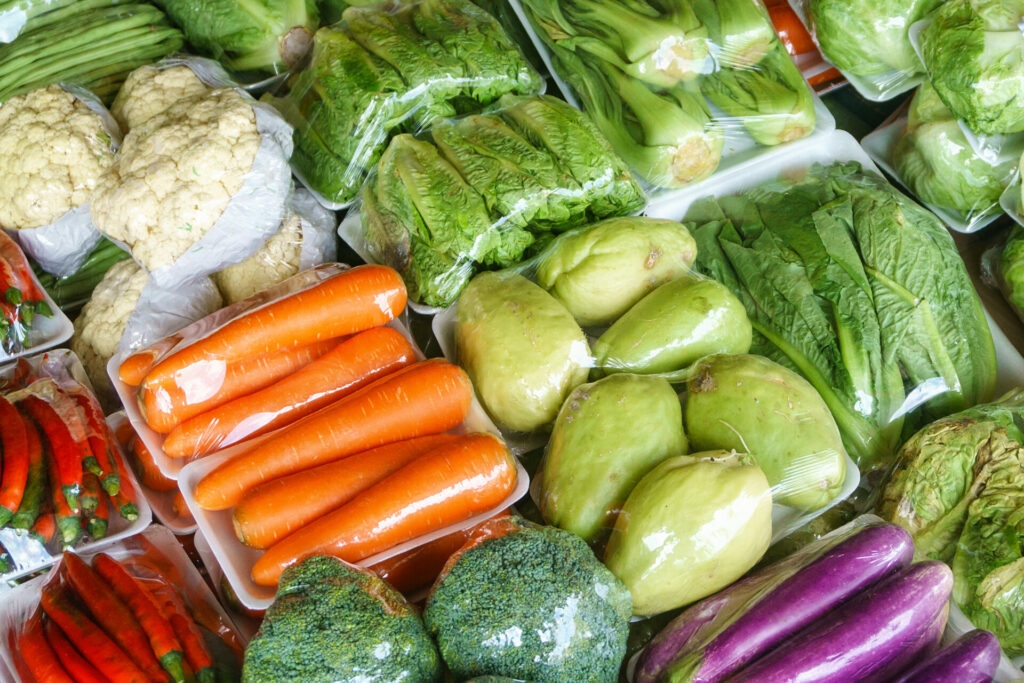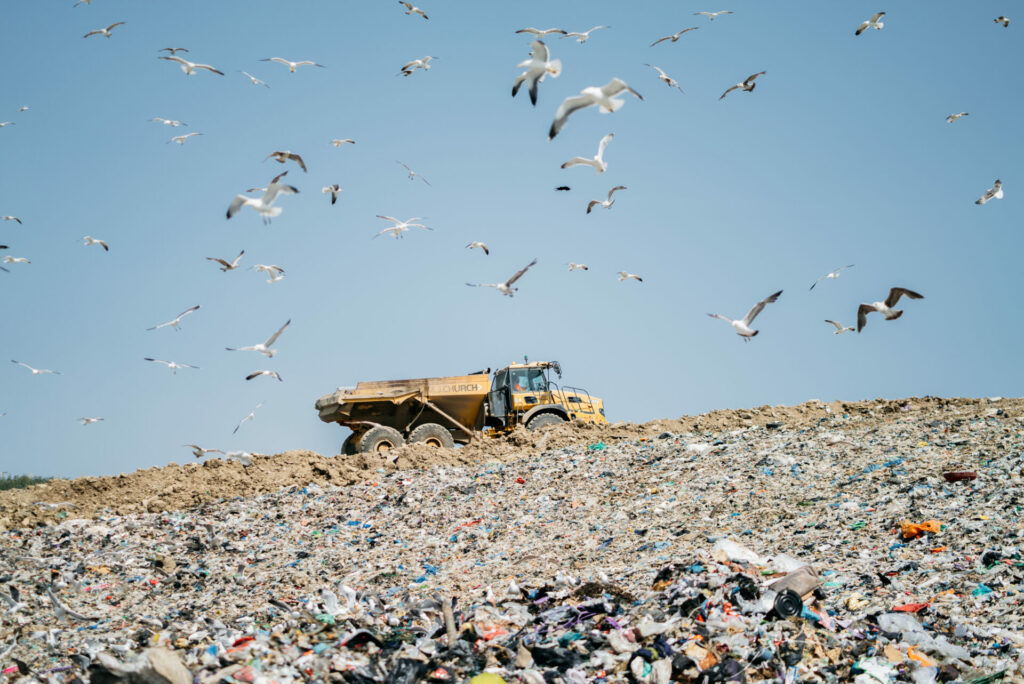UK households throw away nearly 100 billion pieces of plastic packaging a year, according to a survey conducted by environmental organisation, Greenpeace.
The Big Plastic Count study which involved a quarter of a million people from around 100,000 households, also found that just 12 per cent of the single-use packaging used is recycled.
Greenpeace and education NGO Everyday Plastic asked households to count their plastic waste throughout one week in May.
The research found participants collectively threw away 6.4 million pieces of packaging waste in just one week with 83 per cent attributed to food and drink packaging. The most common culprit was fruit and vegetable wrapping.

‘This is a jaw-dropping amount of plastic waste and should give ministers pause for thought,’ said Chris Thorne, plastics campaigner at Greenpeace UK.
‘Just 12 per cent of all this plastic is likely to end up being recycled in the UK, despite the public’s alarm about the issue and efforts to recycle. The rest becomes pollution, whether through landfilling, incineration or export to countries all around the world, gradually contaminating everything – our water, our food, even the air we breathe.
The NGOs are calling on the government to implement legally binding targets that would almost entirely eliminate single-use plastic, starting with a target of a 50 per cent cut by 2025.
‘Pretending we can sort this with recycling is just industry greenwash,’ said Thorne. ‘We’re creating a hundred billion bits of waste plastic a year, and recycling is hardly making a dent. What else do the government need to know before they act?’
Nearly all plastic is made from fossil fuels. This means the material contributes to greenhouse gas emissions at every stage of its lifecycle, from its production to its refining and the way it is dealt with as a waste product.
The research found that 97,948 households across the UK counted 6,437,813 pieces of plastic packaging waste. Broken down, each household threw away just under 66 pieces of plastic packaging in one week, which amounts to an estimated 3,432 pieces over one year.
Taking this weekly average as typical, the researchers said it could be reasonably estimated that homes throw away 1.85bn pieces of plastic packaging a week, equating to 96.6bn pieces a year in the UK alone.
Nearly all plastic is made from fossil fuels, according to research by the Center for International Environmental Law. This means the material contributes to greenhouse gas emissions at every stage of its lifecycle, from its production to its refining and the way it is dealt with as a waste product.

Daniel Webb, founder of Everyday Plastic, said: ‘It has allowed us to build a unique picture of the plastic problem and gather never-before-seen data.
‘These new figures lay bare the responsibility of the government, big brands and supermarkets to tackle this crisis, and they must rise to the challenge right now – there is no time to waste.’
‘Recycling doesn’t work, we all know it,’ he told BBC News, ‘If we think things are being recycled we can carry on the way we are. We need to address things further up the chain. By reducing the amount we produce it will reduce the amount that is thrown away.’
As the survey says, ‘the results of The Big Plastic Count send a clear and urgent message:
recycling is not enough – we must turn off the plastic tap.’









